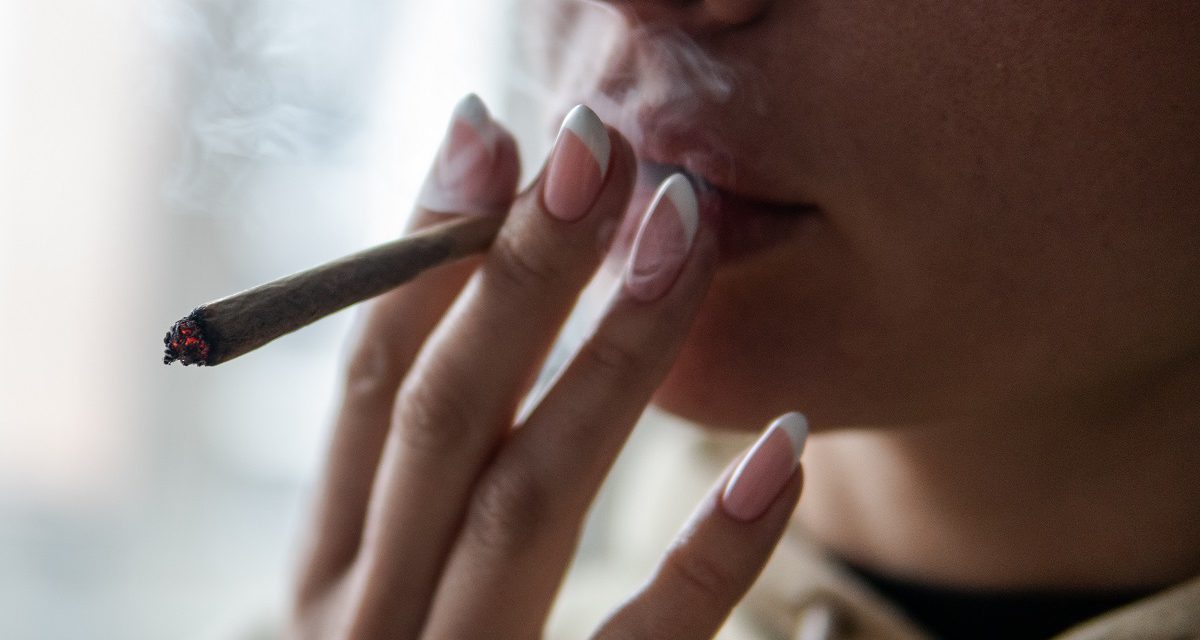According to NIH’s National Institute on Drug Abuse, animal research suggests that the body’s neural system receptors play a role in controlling the brain’s maturation, particularly in the development of emotional responses. Thus, THC (tetrahydrocannabinol – the main mind-altering ingredient found in marijuana) exposure very early in life may negatively affect brain development.
The medical community contends that more research is needed to know how marijuana use during pregnancy impacts the health and development of infants. With an increased use of recreational marijuana as new policies have made the drug legal in 19 U.S. states, and significant increases in pregnant women seeking treatment for substance use disorder, it’s integral that funding is allocated to learn more about the effects of marijuana use during pregnancy.
One study found roughly 20% of pregnant women 24-years-old and younger screened positive for marijuana. This revealed they are twice as likely to screen positive for marijuana use when drug tested as opposed to self-reporting.
Research in rats, the NIH reports, reveals exposure to even low concentrations of THC late in pregnancy could have profound and long-lasting consequences for both brain and behavior in offspring. Human studies have shown that some babies born to women who used marijuana during their pregnancies respond differently to visual stimuli, tremble more, and have a high-pitched cry – which would indicate problems with neurological development.
NIH contends that school children prenatally exposed to marijuana are more likely to show gaps in problem-solving skills, memory and the ability to remain attentive. Medical researchers agree that more research is needed to segment marijuana’s specific effects from environmental factors and use of other substances by mothers.
Because roughly half of U.S. pregnancies are unplanned – with the rate considerably higher for teens and young adults – many women use marijuana without knowing they are pregnant.
A different school of thought
The American College of Obstetrics and Gynecology (ACOG) reports that somewhere between two percent and five percent of women say they used marijuana while pregnant. And since the drug crosses the placenta, harm to the fetus is plausible although the evidence is still unreliable. A review and analysis of 31 previously published studies have found no independent connection between marijuana use and adverse births.
However, there are “confounding” factors for low birth weight and preterm delivery with tobacco use, which is a common combination. Shayna Conner, an assistant professor in the division of maternal-fetal medicine and ultrasound at Washington University in St. Louis School of Medicine concludes that from available evidence the risk surrounding low birth weight and preterm delivery is from tobacco use and other factors – not from marijuana.
However, Conner is not advocating that expecting moms use this info as the green light to roll a joint and get high. “Any foreign substance that doesn’t directly benefit maternal or fetal health should be avoided,” she says.
There are several reasons not to smoke marijuana. For starters, the body of evidence on whether marijuana is harmful to the fetus is inconsistent. Second, little has been done to research long-term risks of neurodevelopment problems – cognitive difficulties or ADHD – in babies exposed to marijuana in the womb.
“Any time there is a substance that we’re not sure of the effects on the fetus or the mother during pregnancy, unless we know of a strong benefit to using the substance, we’d advise not to use it,” says Torri Metz, an assistant professor of maternal-fetal medicine at the University of Colorado Denver.
The smoking gun
Reuters Health reported on a U.S. study which concluded that women who used both marijuana and cigarettes while pregnant delivered smaller babies, delivered earlier, experienced asthma as well as pregnancy-related hypertension (high blood pressure).
The study was conducted to see what effects marijuana alone or in combination with cigarettes might have on both mother and baby. The study team analyzed 12,069 women who gave birth between January 2011 and June 2015 at hospitals associated with Baylor College of Medicine.
Of the entire group, just less than one percent (or 106 women) reported marijuana use while pregnant. Half of this number, 48, said they also smoked cigarettes while pregnant. Researchers found that women who smoked both marijuana and cigarettes were more than twice as likely as women who used neither substance to experience asthma; two and a half more times as likely to deliver prematurely; two and a half more times to have pregnancy-related high blood pressure; and nearly three times as likely to have babies with small heads or low birth weight.
Additionally, the study, reported on in Reuters Health, concluded women who used both substances were more likely than the others to have diabetes and high blood pressure before pregnancy. One other study conclusion is that women who used only tobacco during pregnancy or only marijuana – and those who used both – were also four to seven times more likely than women who used neither to have depression or anxiety.
As for every health care practitioner we’ve interviewed about this topic over years, the answer is simple: don’t smoke weed or cigarettes while pregnant.
accessHealth interviewed two mothers about smoking marijuana while pregnant. One smoked both marijuana and cigarettes. Both asked not to be mentioned by name.
“Linda” said she was extremely depressed throughout her pregnancy. Although she has never smoked cigarettes, she did smoke marijuana occasionally (a couple times a month) while pregnant. “It was a way for me to escape,” she said. “It made me feel better about things.” She gave birth to a girl who is now in her preteens. The child has been diagnosed with a learning disability and resides along the autism spectrum.
“The doctors say they can’t know for sure if her condition was due to me smoking weed,” she said. “I feel like it is.”
“Candace” is a heavy cigarette smoker and maintained this habit while pregnant. She also regularly smokes weed – another habit she maintained while pregnant with all three of her children. When asked if she ever considered stopping, if nothing else, while she was pregnant, her answer was emphatic: “No,” she said. “You do what you have to do to stay up. I don’t drink, and I don’t use hard drugs. My kids are healthy and happy.” It’s important to note that two of her three children were low-weight births. It’s also important to note that correlation is not meant to suggest causation.
Here’s what ACOG recommends:
- Before pregnancy and in early pregnancy, all women should be asked about their use of tobacco, alcohol, and other drugs, including marijuana and other medications used for nonmedical reasons.
- Women reporting marijuana use should be counseled about concerns regarding potential adverse health consequences of continued use during pregnancy.
- Women who are pregnant or contemplating pregnancy should be encouraged to discontinue marijuana use.
- Pregnant women or women contemplating pregnancy should be encouraged to discontinue use of marijuana for medicinal purposes in favor of an alternative therapy for which there are better pregnancy-specific safety data.
- There are insufficient data to evaluate the effects of marijuana use on infants during lactation and breastfeeding, and in the absence of such data, marijuana use is discouraged.
Resources for additional information:








